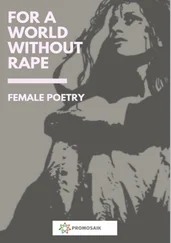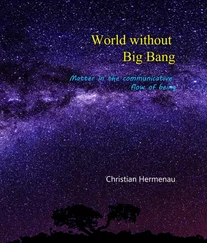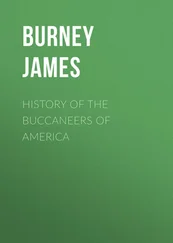“That spicy sweet flavor was dong quai . It’s a pretty little herb with white flowers; I’m sure you would love it when it’s in full bloom. But it’s the root that we use. Oh, don’t worry about the Emperor; I’m told the new taster is good at his job, and dong quai has no effect on men anyway. It’s on women that it works. It’s usually taken by daughters of good families that need to get rid of an inconvenient pregnancy. But even in a woman who is not pregnant, a careless amount can cause copious bleeding.”
Xiaobo’s insides twisted again, and it was more than mere worry.
“You can keep insisting you’re not a woman hiding under those eunuch robes. Soon I will know.”
Morning, October 5 (Gregorian), 1620
Beijing
To Tsunenaga’s surprise, the Emperor summoned him for a second talk. He was again escorted out of the barracks and led, this time, to the garden behind the Palace of Heavenly Purity, where Taichang invited him to walk along an artificial canal decorated with carved stone fences. Tsunenaga was surprised to see that Xiaobo was not there. A court eunuch who spoke Portuguese greeted him and started walking alongside them. Without waiting for the customary salutation, Taichang began, “Yesterday was a full day. Things still need doing. Positions to fill, captains to promote. My father left many decisions unfinished, but that is true of every dead man.”
“Why is Your Majesty telling me all this?”
“Indeed, why you? I’ll tell you why: anyone else I may choose to talk to has some stake in my decisions. But you’re not from here, and if given the chance, you’d run away to your island. You don’t care how I run the empire, and that’s why I find I can tell you about it.”
Tsunenaga tried to divine what could be behind that outpour of honesty, and liked none of the possible explanations. “Is Your Majesty asking for my advice?” He had the suspicion that the translator was not fully competent in Portuguese, or maybe his own Spanish was the barrier, but it caused him anxiety to not know whether he was getting the full meaning.
“Maybe more than that. I still don’t know. My gratitude to you seems to not have been exhausted. I wish I could do more to show you my appreciation.”
“That is very gracious of Your Majesty.”
“Spare me the formulas. What do you wish for?”
He thought for a moment and said, “In my country, a man of my position displays his rank by carrying a sword in public.”
“A sword? Is that what you want?”
“If it’s at all possible, Your Majesty.”
“The necessary arrangements can be made to let you have one. Of course, I forbid you to carry it in my presence. But before commoners, it shouldn’t be a problem.”
“Thank you.”
The Emperor adopted a more serious expression. “Your request about religious freedom has given me much to consider.”
Xiaobo had omitted telling Tsunenaga what she’d said in his name, and he proceeded accordingly. “It wouldn’t be the first time that the ruler of a mighty empire opens the way for a new religion and gains even more glory for the empire. If Your Majesty allows me to tell the story of the Roman Constantine—”
“I’m not only thinking of the new. There are hundreds of traditions among my subjects, and I’ve been thinking that the way my father and all his fathers handled religion was too beholden to just one way of doing things.”
As the translator repeated this, Tsunenaga saw with alarm the implications of the Emperor’s plan. “But of all religions, only one is correct.”
“I’ve heard that, as much from the Jesuits as from every other breed of priest. Such arguments are not very convincing to me.”
Tsunenaga tried to remember the lives of saints he’d read in Spain, and what obstacles they’d found in their quest to evangelize. “An ordinary citizen may feel obliged by his lord, but you have the freedom to make up your own mind. If you tell your people what to believe, they will have to obey.”
“That is true. But we both know you’d like to be the one to tell me what to tell them.”
As if by agreement, they fell into a tense silence that was open on one end only; it was up to Tsunenaga to break it. He had to admit to himself that, since he’d departed for Spain seven years before, his life had consisted of a continuous series of reversals and frustrations. He’d failed to negotiate a trade route with Spain, he’d failed to obtain missionaries from the Pope, he’d failed to warn the lord of Sendai, and now he was going to fail to win China for Christ. “What am I doing here?”
“You’re here to provide me with a broader perspective. It isn’t thanks to Chinese rites or Chinese medicine or Chinese wisdom that I’m alive. Last night I ordered old archives to be brought to me. I spent hours reviewing the astronomical charts the Jesuits brought with them. I don’t know what half of it all means, but it does help me realize our situation. We close our ears at our peril. We need to abandon this poisonous idea that other cultures have nothing to teach us.”
Tsunenaga didn’t even think about it. “Is Your Majesty willing to listen to the teachings of the Heavenly Lord?”
“That’s not exactly where I was planning to start, but what have you got?”
He hesitated. He wanted to request a different translator; Spanish and Portuguese didn’t always harmonize with each other. “Excuse me, Your Majesty, but where is Ma Liang?”
“I don’t know. He must be on some other assignment. You’d have to ask the Chief Eunuch.” Seeing that Tsunenaga didn’t reply to that, he pressed on, “What is this doctrine that you’re so eager to tell me about?”
He resisted looking at the translator. His faith was struggling with his fear that the perennial truths he was going to repeat from memory would not be transmitted in full. He started very carefully, and begged God for guidance. “It is a doctrine of love, repentance, and forgiveness. We are all called to love the Heavenly Lord.”
“Who is your Heavenly Lord?”
“The maker of all things.” He hated to use such simplified terms, but he wanted to make sure nothing was distorted. “You— I mean, anyone who wants to become holy has to first repent of their sins and be reconciled to the Son of the Heavenly Lord.”
“You keep adding characters to the story. Now who’s the Son?”
“He is the promised king who will one day judge the world. All are destined to kneel before him.”
The Emperor smiled. “Tell me more.”
And thus did Hasekura Tsunenaga make his third mistake.
Afternoon, October 19 (Gregorian), 1620
Beijing
By order of the Emperor, Hasekura Tsunenaga was moved from the soldier barracks to a proper house in Beijing. Over the intervening weeks, Jesuit preachers were ordered to return from their exile in Macau. Having the opportunity to speak to these missionaries and to take communion again gave Tsunenaga great joy; they likewise let him know they were hopeful for the future of the Church in China as a result of his influence over the Emperor. Almost every day, he’d been summoned to explain the fundaments of the religion to him: the commandments, the sacraments, the kingdom of God, the position of Jesus, and particularly the story of Constantine, the man who had converted a whole empire. So well did these conversations go that Tsunenaga wasn’t entirely surprised when the Ministry of Rites announced that the Emperor was going to make a big public proclamation at the Gate of Heavenly Peace, where the inner city of Beijing connected with the Forbidden City. As the day advanced, word of mouth brought thousands to witness the ceremony, which was being prepared with pompous decorations and music. Tsunenaga hadn’t been personally invited in any official position at the event, but he couldn’t help thinking it must have to do with his efforts. The Jesuits were suspecting as much; they were already thanking God for having given the Church another Constantine.
Читать дальше












